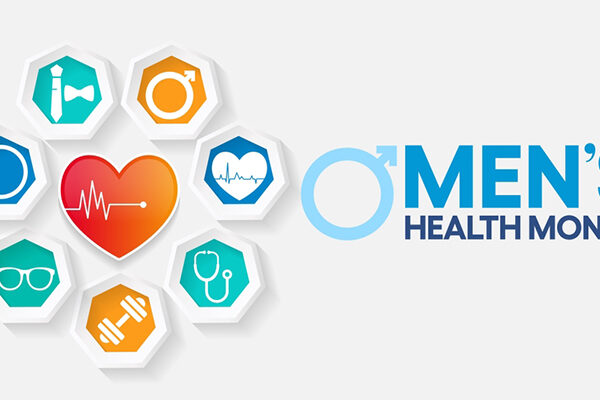Updated on November 2, 2023
Overview
Can An Infection Cause High Blood Pressure? High blood pressure, or hypertension, is a medical condition where the force of the blood against the walls of the arteries is consistently too high. It is often referred to as a “silent killer” because it may not cause noticeable symptoms, but it can lead to severe health problems, such as heart disease, stroke, and kidney damage.
While there are certain well-known risk factors for hypertension, such as a sedentary lifestyle, poor diet, and genetics, the connection between infections and high blood pressure is one area that has gained attention from multiple clinical research organizations. The question always exists can an infection cause high blood pressure?
To understand the potential link between infections and high blood pressure, it’s important to delve into the basics of hypertension, its causes, and the intricate mechanisms that govern our cardiovascular system.
Understanding High Blood Pressure
Blood pressure is the force exerted by blood against the walls of the arteries as the heart pumps it throughout the body. It is measured in millimeters of mercury (mmHg) and expressed as the difference between two values: systolic pressure over diastolic pressure. Systolic pressure represents the force when the heart beats, while diastolic pressure is the force when the heart is at rest between beats. The normal blood pressure range is usually 120/80 mmHg.
When blood pressure consistently exceeds 130/80mmHg, it is diagnosed as hypertension. Prolonged high blood pressure can damage blood vessels and cause severe health problems such as heart disease, stroke, and kidney problems.
Causes of Hypertension
- Lifestyle Factors: Poor diet, lack of physical activity, smoking, and excessive alcohol intake are all risk factors for hypertension.
- Genetics: Hypertension runs in families, so people with a history of this condition are more likely to get it.
- Age: Blood vessels naturally become less elastic with age, increasing the likelihood of causing high blood pressure.
- Obesity: Excess weight forces the heart to work harder to pump blood, leading to increased blood pressure.
- Chronic Kidney Disease: The kidneys play a crucial role in regulating blood pressure, and any dysfunction can contribute to hypertension.
Can An Infection Cause High Blood Pressure?
Before exploring the potential link between infections and high blood pressure, it’s essential to understand how infections affect the body and how the immune system responds to them.
Infections occur when harmful microorganisms invade the body, such as bacteria, viruses, fungi, or parasites. The immune system, a complex network of cells and proteins, works relentlessly to identify and discard these intruders. The immune response involves the activation of several defense mechanisms, including inflammation and antibody production.
Inflammation is a key component of the immune system response. When the body recognizes an infection, it releases inflammatory mediators in order to attract immune cells to the infection site. While inflammation is an important protective mechanism, persistent or severe inflammation can be harmful to blood vessels.
Inflammatory processes can damage the endothelium, the inner lining of blood arteries. Endothelium plays an essential role in regulating blood flow and preserving vascular health. When arteries become inflamed, they become less flexible and lose their ability to dilate or constrict in response to changes in blood flow.
The Potential Link Between Infections and High Blood Pressure
According to research, certain infections may cause the development or exacerbation of high blood pressure. Several mechanisms have been presented to explain this connection:
Inflammation-induced Endothelial Dysfunction:
Chronic infections can cause persistent inflammation and can lead to endothelial dysfunction. This malfunction impairs the ability of blood vessels to relax and contract properly, contributing to high blood pressure.
Renin-Angiotensin-Aldosterone System (RAAS) Activation:
Some infections can activate the RAAS, a hormonal system that regulates blood pressure and fluid balance. Excessive activation of this system can result in vasoconstriction (narrowing of blood vessels) and sodium retention, both of which contribute to high blood pressure.
Direct Invasion of Germs in Blood Vessel Walls:
In certain infections, microorganisms may directly invade the blood vessel walls, causing damage and triggering an inflammatory response. This invasion can damage the structural integrity of blood vessels and contribute to hypertension.
Immune System Dysregulation:
Chronic infections can cause dysregulation of the immune system, resulting in an overactive response that can contribute to inflammation and vascular damage.
Notable Infections and Their Potential Impact on Blood Pressure
While more research is needed to establish a definitive approach to know how an infection could cause high blood pressure, some infections linked to hypertension are mentioned below:
Chronic Kidney Infections:
Kidney infections, such as chronic pyelonephritis, can impair kidney function and disrupt the balance of fluids and electrolytes, contributing to hypertension.
Respiratory Infections:
Chronic respiratory infections, such as some types of pneumonia, may cause inflammation and respiratory distress, potentially impacting blood pressure.
HIV/AIDS:
Untreated HIV/AIDS patients may experience persistent immunological activation and inflammation, which may contribute to cardiovascular problems, such as hypertension.
Lyme Disease:
The bacteria Borrelia Burgdorferi causes Lyme disease, which has been linked to cardiovascular complications such as heart block and myocarditis. While there is no direct link to hypertension, the inflammatory response induced by Lyme disease may have implications for blood vessel function.
Treatment Approaches
Lifestyle Modifications to Manage Blood Pressure:
- Diet: Adopting a heart-healthy diet that includes fruits, vegetables, whole grains, and low-fat dairy products. Limiting sodium consumption is essential since excessive salt can contribute to hypertension.
- Exercise: Regular physical activity is vital for preserving cardiovascular health. Aerobic exercises such as brisk walking, jogging, or swimming can help manage blood pressure.
- Stress Management: Chronic stress might contribute to high blood pressure. Meditation, deep breathing exercises, and yoga can all help with stress management.
Medications Used to Treat High Blood Pressure:
- Diuretics: These medications assist the body in eliminating excess sodium and water, thereby reducing blood volume and pressure.
- Beta-Blockers: These lower blood pressure by reducing the heart rate and the force of the heart’s contractions.
- Angiotensin-converting enzyme (ACE) Inhibitors and Angiotensin II Receptor Blockers (ARBs): These medications relax blood vessels, allowing blood to flow more freely, and also inhibit the release of certain hormones that raise blood pressure.
- Calcium Channel Blockers: These medications block calcium from entering the heart and blood vessel walls, leading to lower blood pressure.
- Other Antihypertensive Medications: Additional medications such as alpha-blockers or central agonists may be prescribed depending on the individual’s health needs.
- Clinical Trials: Hypertension clinical trials evaluate new treatments and interventions for high blood pressure.
Infection Management as Part of a Comprehensive Treatment Plan:
- Identification and Treatment of Infections: If there is evidence of an infection that may cause high blood pressure, addressing the underlying infection is vital. Depending on the type of infection, this may include antiviral or antibiotic drugs.
- Monitoring and Follow-Up: Regular monitoring of blood pressure and follow-up examinations are required to ensure that both hypertension and any underlying infections are effectively managed.
Prevention Strategies
Importance of Vaccination:
- Vaccines for Preventing Infections: Vaccination is an important preventive measure against a variety of infectious diseases. Vaccination against influenza, pneumonia, and other preventable diseases can lower the risk of infections that lead to hypertension.
Hygiene Practices to Prevent Infection Risk:
- Hand Hygiene: Regular handwashing is a simple yet effective way to prevent the transmission of infections. Proper hand hygiene minimizes the possibility of respiratory and gastrointestinal infections.
- Sanitation Practices: Keeping a clean environment, including adequate sanitation of food and water supplies, aids in the prevention of transmission of infectious agents.
- Respiratory Hygiene: Practicing good respiratory hygiene, such as covering the mouth and nose when coughing or sneezing, aids in the prevention of respiratory infections.
Regular Health Check-Ups for Early Detection of Infections:
- Routine Medical Examinations: Regular health examinations enable the early diagnosis of infections. Early intervention can help avoid the development or progression of infections that might lead to hypertension.
- Screening for Chronic Infections: In some circumstances, screening for chronic infections, such as viral infections like HIV or hepatitis, may be advised as part of preventive healthcare.
Also read: Understanding Cerebral Embolism and Cerebral Thrombosis: Link with Hypertension
Summary
Medical professionals are still researching to have a definitive diagnosis. The correlation between infections and high blood pressure is a complex and evolving field of study. While there is evidence that certain infections may contribute to hypertension through a variety of mechanisms, further research is required to establish a clear causal link to identify the microorganisms involved, and solve this puzzle — “can an infection cause high blood pressure?”
Individuals with chronic infections or those at risk of infections should prioritize preventive measures, prompt medical intervention, and regular monitoring of blood pressure.





